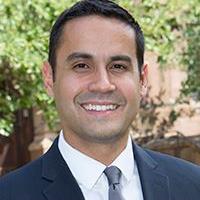Commentary on Acts 16:9-15
Like much of Luke-Acts, this week’s text finds Christians on the road.
Seemingly unable to stand still, Paul is on the move, proclaiming the good news in a part of the ancient world rife with historical significance as well as great diversity of people. The geographical expansion narrated in these verses is a result of the consequential wake of the apostolic council’s decision in Acts 15 to welcome Gentiles without requiring circumcision. This decision sanctions Paul’s efforts in Acts to reach “the ends of the Earth.”
Asking for Directions
The first stop on the itinerary is Macedonia. The divine signposts up to this point had been negative. Repeatedly, God’s spirit kept redirecting their journeys, blocking their path to Asia and Bithynia (16:6, 7). It is as if the divine GPS was neglecting to tell these evangelists where to go but continually produced clear roadblocks; Paul confronts detour after detour without a precise destination. Clarity only arrives when Paul and his companions arrive in Troas.
There, a vision finally shows the way. Paul sees a Macedonian man beckoning, begging for his help. About this vision much is left unsaid. For example, the Macedonian does not specify for what assistance he hoped. Luke only indicates that Paul and his companions fully understood the dream. “Immediately,” they set out for Macedonia. On the road again, these early Christians are on the move thanks to the Spirit.
Finally, A Destination
Smooth sailing brings them to Philippi. The description of the city is complex but telling. First, significant text critical issues at verse 12 complicate exegesis. Ought we read that Philippi was the first city in Macedonia which Paul and his companions reached, the capital of the Macedonian region, or the leading city in the area? I concur with the NRSV’s reading here, which opts for the latter alternative. The text thus highlights that these early evangelists are headed to an eminent city.
Second, Philippi is described as a colony. This is the only city in all of Luke-Acts that receives this designation, though we know of other cities that Luke mentions that were unquestionably well-known colonies. Why then stress this civic feature? Why stress Philippi’s importance along with its status as a Roman colony? These descriptions anticipate the dramatic travails Paul and Silas will encounter in Philippi. Such characterizations–as I will detail next week–set the stage for a city’s denizens to jail and persecute these proclaimers of the good news as criminal proponents of a foreign way of life.
A Detour of Sorts
Before these conflicts, however, Luke reports some significant but rather surprising successes. Up to this point in the narrative of Acts, and in subsequent stops, the typical practice of Paul has been and will be to seek the synagogue first (Acts 13:14; 14:1; 17:1, 10, 17; 18:4, 19; 19:8). Here at Philippi, however, the Sabbath day finds them not at a synagogue, but at an unlikely location on the very fringes of this powerful city. Outside the city, they reckon they would find a place of prayer. How they knew this or why the imagined this to be true, Luke does not explain. What is clear is that the Spirit has lead these proclaimers thus far and has continued to do so to this point, for Paul finds Lydia in this unlikely place of prayer.
In a group of women listening to Paul and his companions, Lydia is highlighted in three ways. She is a worshipper of God, a native of Thyatira, as well as a purveyor of purple cloth. The first designation identifies her as one of a number of individuals in Luke-Acts with a faithful proclivity towards the God of Israel (cf. Acts 13:43; 17:17; 18:7 among others). These are individuals who have inclined themselves to this God though they are not identified as Jews and thus are on the margins of the faith. Second, the naming of her hometown is an unexpected twist; despite the fact that a Macedonian man beckons the help of Paul, it is a foreign woman who first has God open her heart to faith! Finally, her profession is perhaps an indication of her unusual social class and powerful status. Thus, the narrative ends with a note of generous hospitality. For Lydia a natural result of her and her household’s receiving of the good news is to welcome these erstwhile strangers into her home.
A Legend for Luke’s Map
For westerners, these verses present a temptation: too often, we imbue the advent of the gospel on the European continent and Lydia as Europe’s first convert with theological significance. However, there is no evidence that Luke had such a cartographical shift in mind. Neither is there an overarching shift from east to west. It is not a European who beckons Paul, but a Macedonian. Lydia is associated with Thyatira not the continent of Europe; that is, she is on European soil in Philippi, but she is actually from the other side of the Aegean. In antiquity, the powerful legacy of Macedonia would have leapt to the reader’s mind rather than Christianity’s arrival on new continental soil. Thus, we can again be reminded of the cultural distance between our cultural assumptions and those of the writers of the New Testament. For Acts, this is indeed an important moment guided by God’s clear handiwork, a vital transition both in geographical space and theological significance, but not in the way we might expect.
Preaching a text that reads like a travel itinerary can prove challenging, to say the least. To be sure, one could focus on the extraordinary story of Lydia’s conversion, but this leaves much of the text unexamined and unproclaimed. For Luke, these geographical details are not mere window dressings or simple signposts to help the reader keep their place on the map. After all, this selection begins with the heavy hand of the Spirit directing Paul in no uncertain terms. The conversion of Lydia is not explained save to say that God opens her heart to receive what Paul was saying.
Unmistakably for Luke, this is the way upon which God plans the church to walk. We ought to follow God’s call to reach across cultural and ethnic boundaries and learn to find opportunities to do God’s work in unexpected places. In Acts, this road is particularly marked by the panoply of people toward which the Spirit reaches out–Macedonian, Philippian, Thyatirian, Jewish, and Roman alike. Ought not our missional paths bear the same character?


May 9, 2010